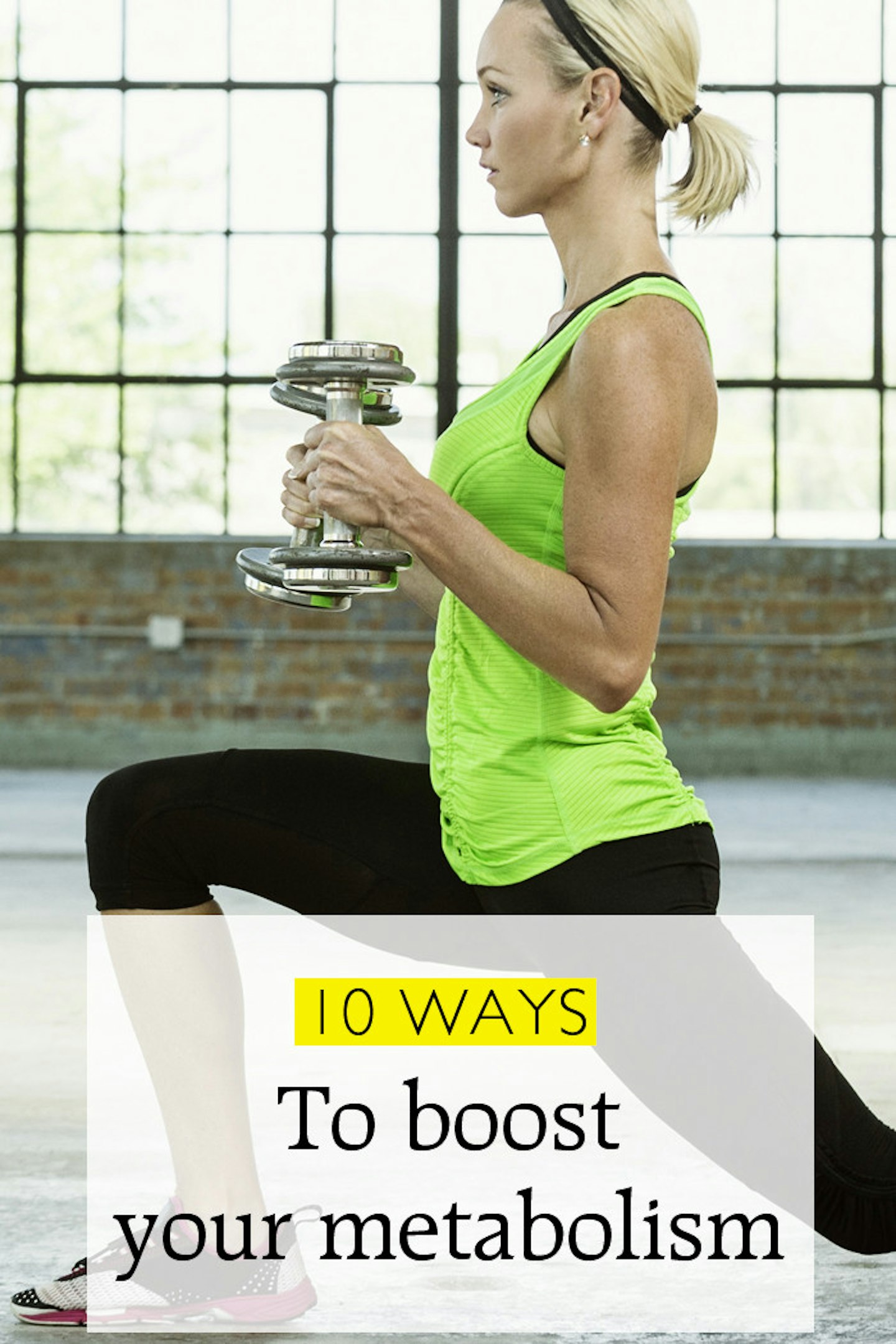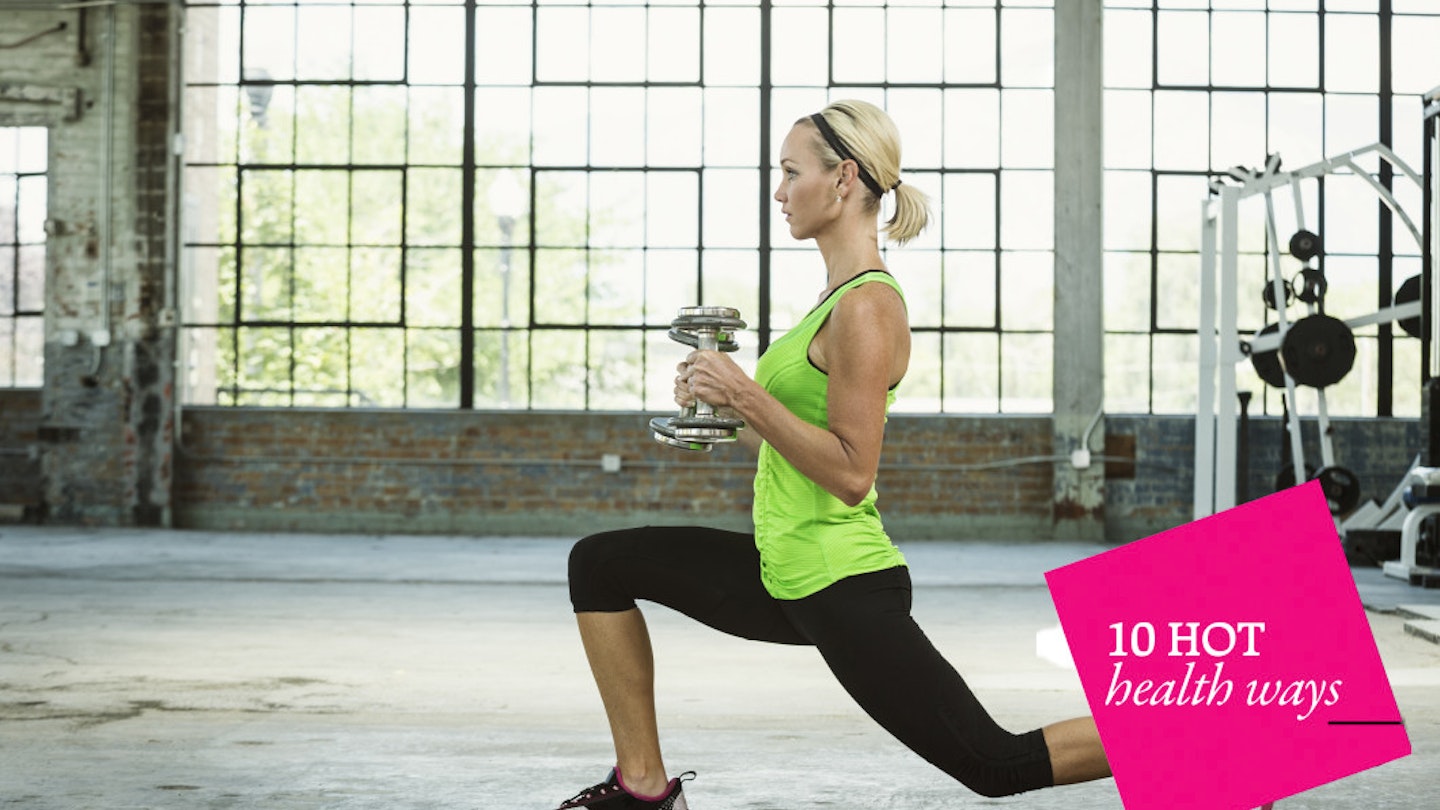If you feel like you aren’t what you eat – ie, you’re positively saintly with your snacks but aren’t in the shape you want to be in, it can seem like your body’s working against you. We spoke to Kamilla Schaffner, of My London Nutritionist about how to understand your metabolism, and make it work for you.
Grazia Daily: What is the metabolism?
Kamilla Schaffner: "Metabolism is a physiological process that encompasses everything your body does to keep you alive - including digesting your food, and all the biochemical reactions that break down the food into energy. When your metabolism is working properly, you get hungry at an appropriate time, stop eating when you feel full and digest and assimilate food in the most optimal way without gaining excess weight or getting ill. The problem is that most people tune out of their bodies’ signals of hunger and fullness, and that’s where majority of their health issues start."
GD: What is a ‘good’ metabolism and what is a ‘bad’ one?
KS: "A clinical nutritionist would consider someone to have a good metabolism if there is no significant fluctuation in weight when they occasionally have more calories (extra dessert, pizza night with one too many bottles of wine etc.). If you can have a weekend of culinary indulgences and not end up with excess pounds come Monday morning, it means that your metabolism can self-regulate and work through excess calorie load."
"A slow metabolism means you don’t feel hungry or full at the appropriate time which eventually leads to weight gain and potentially some endocrine (hormonal) problems. In my practice, I see a lot of patients who have compromised their metabolism purely by ignoring the signals of hunger, which ends up shutting down their metabolic function and ultimately leading to weight gain. I am sure you have heard people say, ‘I eat salad 3 times per day and still put on weight!’ That's because they've compromised their metabolic rate by going against the natural physiological impulse of hunger."
GD: Is everyone born with either a slow or fast metabolism, or is this an old wives tales?
KS: "Unless you have a history of endocrine disorders or auto-immune disease running in every generation of your family, you can rest assured that you are born with an optimal metabolism. Fast or slow is what you do to your body throughout your life in terms of food consumption, physical exercise and dietary habits."
"Of course, there are people who can wolf down a hamburger and French fries every other day and have a very low body fat percentage (experience tells me that these are normally marathon runners, gym bunnies or generally extremely active people). By the same token, I see people who drink a cup of tea for breakfast, salad for lunch, and grilled chicken for dinner and have immense problems with their weight. But it is not just about your genetics - it is what you do to your body that determines your metabolic rate."

GD: Is it possible to make life changes that will improve the way your metabolism works?
KS: "Absolutely. You can re-set your metabolic rate but you need to be very mindful of what your body says to you on a daily basis. This is especially important for women due to their hormonal cycles. Getting enough quality sleep and having regular physical exercise is very important. Abstaining from alcohol throughout the week and saying ‘no’ to smoking will help tremendously too."
"Understanding your nutritional requirements is vital and that is when help from a highly qualified nutritionist is important: you need to consume a certain amount of vitamins, minerals, amino acids, and raw enzymes to keep the flame of your metabolic rate burning. Certain foods will dampen the metabolism (for example, heavily processed food) and certain foods like high quality lean protein, certain raw herbs and fruits will increase it."
GD: How should we eat for a good metabolism?
KS: "A good general rule is that the amount of food you eat throughout the day should reduce towards the evening meal. The ideal is to have a solid breakfast, then a good lunch, followed by a light dinner. If you can't face a big breakfast, make sure that your lunch is your biggest meal of the day. Have a good snack of fruit and 5-10 nuts or some high quality protein at around 4pm so that you don’t feel ravenous around dinner time."
"Supper should be light: soup with some sautéed vegetables on the side, or grilled fish with some baked veggies or a light omelette with a small salad. Generally, if you want to boost your metabolism, I recommend high quality protein - lean meat, fish, eggs, seafood, cottage cheese, tofu, tempeh, beans and yogurt. Also, certain herbs and spices tend to increase your internal body temperature, which in turn increases your metabolic rate: green tea, chillies, garlic, ginger, cayenne pepper, black and white pepper all have that effect."
GD: What lifestyle factors and habits can lead to a sluggish or lazy metabolism?
KS: "You might not want to hear this, but over-consumption of alcohol is the major reason young women experience compromised metabolic function and weight gain. The next biggest mistake, which sounds very obvious, is overeating. People overeat, full stop. If you feel full but that grilled chicken is too good to leave behind – leave it behind or have it for your snack."
"Overeating is overstretching your stomach muscle. I am not talking about your six pack here, I am talking about your internal tissues. Once it has stretched due to habitual excess food, it is very difficult to re-set the satiation point as the hormone responsible for telling you that you are full isn't released correctly."
GD: Is it true that exercise speeds up the metabolism? And what does that mean in terms of how we eat afterward?
KS: "Exercise optimises metabolism, which means that the calories you have eaten will be used, as opposed to stored. A lot of people think that just because they go to the gym, they won’t suffer from excess calories. That’s not the case."
"Granted, you can and should eat more of certain food groups if you exercise regularly: a good quality carbohydrate like oat porridge before your work-out, and a great quality protein (grilled chicken, seafood, or a protein shake) after your workout. Just don't think you can go crazy because you've done a gym class!"
GD: What three habits should we incorporate into our lifestyles to have a better, happier metabolism?
KS: "Eat more fresh fruit and vegetables. You really cannot go wrong having a couple of peaches or a bunch of grapes when you feel like having something sweet. Include berries and fruit in your breakfast, load up on a rainbow of veggies for your lunchtime salads; and snack on apples, pears, bananas – it’s mostly water, glucose and vital vitamins and minerals."
"Try drinking 1 litre of water a day and then gently increase it to 1,5 to 2 litres, depending on how active you are. Equally, watch your alcohol consumption – alcohol is too calorific to have on a regular basis and will deplete you of certain vitamins like Vitamin B group."
"Finally, please control your portion sizes and don’t overeat. After the age of 30, any excess food will not be processed as quickly, so be careful with your portions - even of healthy foods. I am talking to avocado toast addicts here!"
